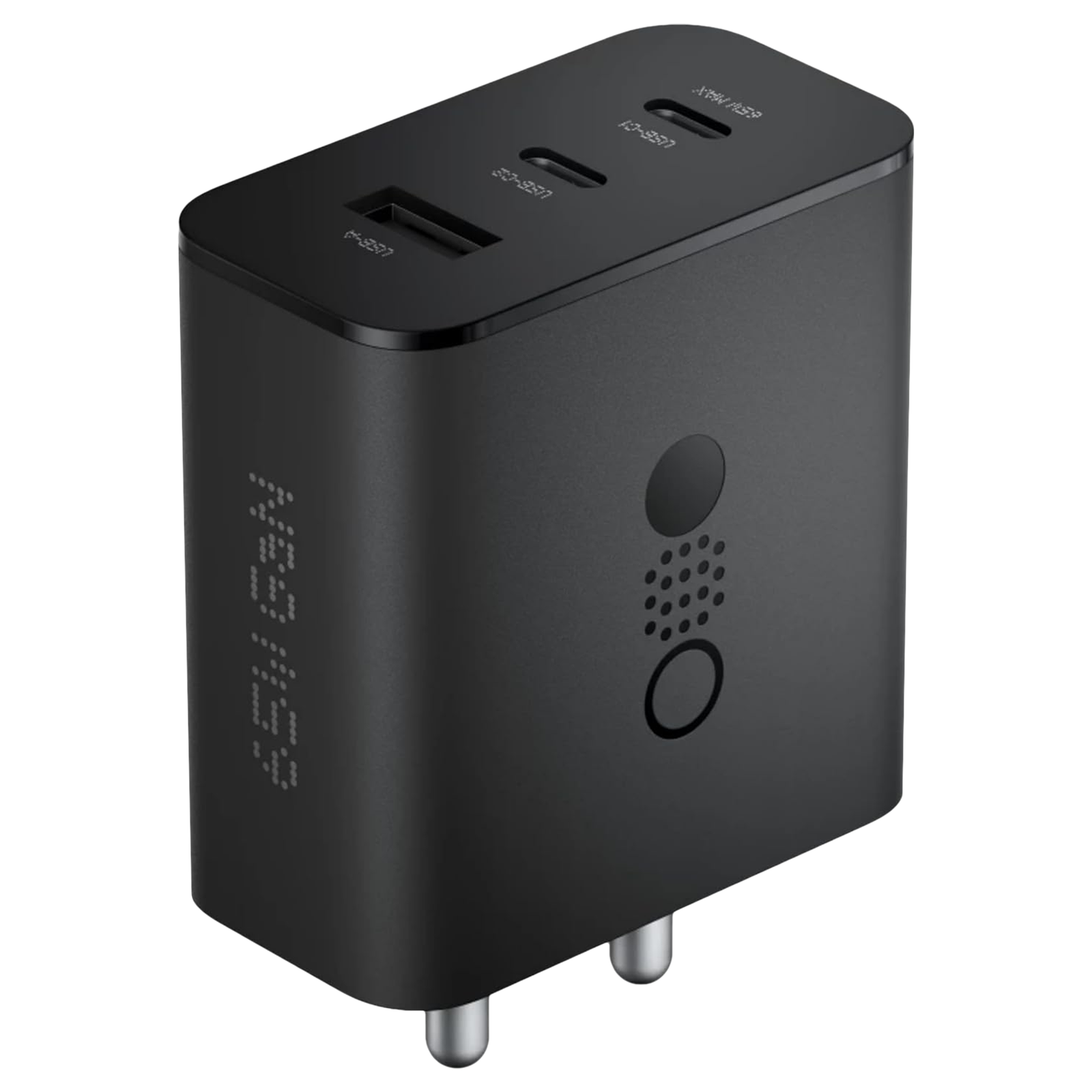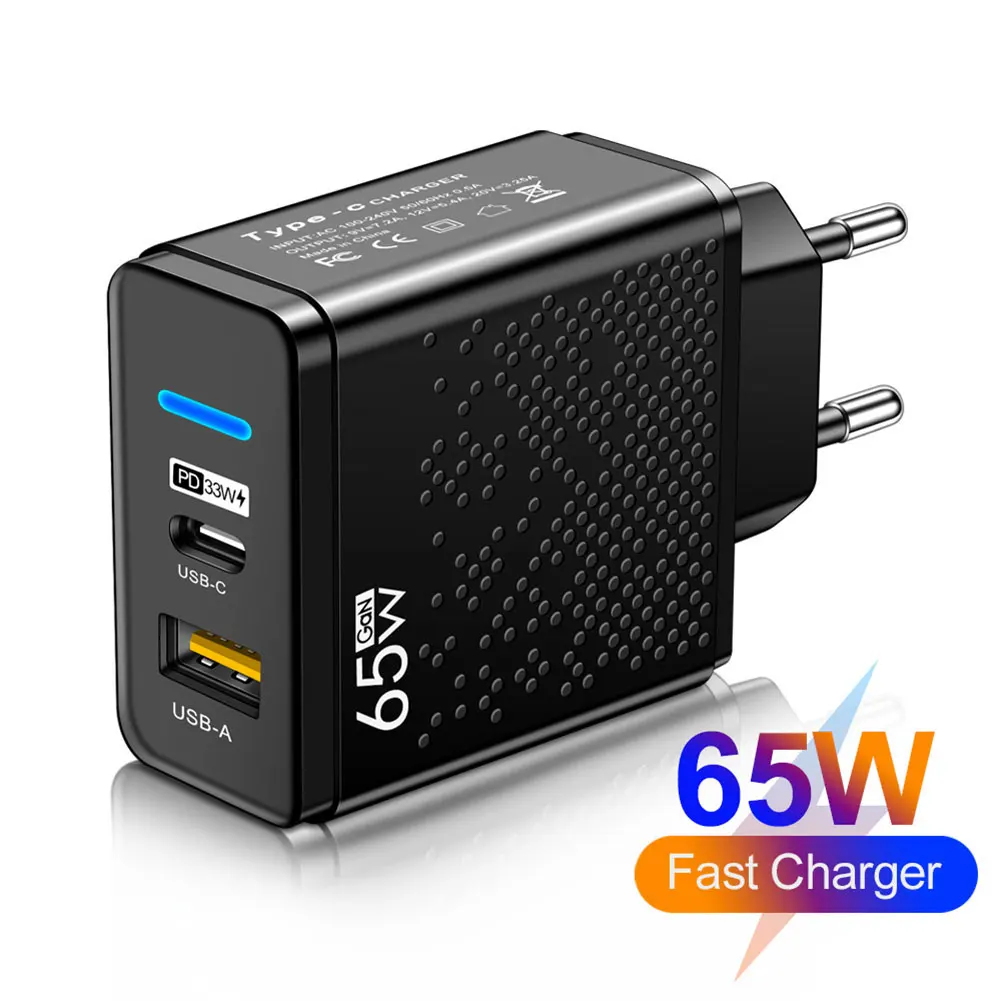Painstaking Lessons Of Tips About Can I Use A 100W Charger For 65W Phone

Can You Use A 65w Charger For Your Smartphone? Blackview Blog
Can My Phone Handle All That Power? Charging Ahead with 100W Chargers
1. Understanding Wattage and Phone Charging
So, you've got a fancy new 100W charger, and your phone's sitting there with a measly 65W requirement. The question is, can you plug 'em together without turning your beloved device into a crispy critter? It's a valid concern! We've all heard stories of tech gone wrong, and nobody wants their phone to become the next cautionary tale. The main point in question here is about " Can I use a 100W charger for a 65W phone" and that phrase is a question, which its main component is a verb.
Think of it like this: your phone is like a thirsty plant. It needs water (electricity), but it only needs a certain amount to thrive. If you dump a whole bucket of water on a little succulent, it's going to be overwhelmed and potentially drown. Similarly, if you force too much power into your phone, you could damage the battery or other internal components. But here's the good news: modern phones are smarter than succulents!
They're equipped with power management systems that regulate the flow of electricity. These systems act like a sophisticated watering system, ensuring that the phone only receives the amount of power it can safely handle. So, even if you plug in a 100W charger, your 65W phone will only draw the 65W it needs. It's like having a self-regulating tap that only dispenses the right amount of water, no matter how much pressure is in the pipes. The phone's power management chip negotiates with the charger to determine the appropriate voltage and current levels.
This negotiation happens through protocols like USB Power Delivery (USB-PD). The charger and the phone 'talk' to each other, figuring out the optimal charging parameters. This is why you'll often see phones fast charging even with a higher wattage charger, but they'll still stay within their safe operating limits. In short, the phone controls the charging process, not the charger, so it will only ever draw what it needs and is designed for.

Can I Use 100W Charger For 65W Laptop Safe Charging Guide
The Safety Dance
2. Addressing Safety Concerns
While the tech generally works as described, safety is paramount. It's always wise to exercise caution. First, ensure that both your charger and your phone adhere to established safety standards. Look for certifications like UL (Underwriters Laboratories) or CE marking, which indicate that the products have undergone testing and meet specific safety requirements. Using reputable brands also helps ensure quality and reliability. Cheap, unbranded chargers might not have the same level of protection, increasing the risk of issues.
Furthermore, avoid using damaged chargers or cables. Frayed wires, bent connectors, or cracked housings can create electrical hazards. Regularly inspect your charging equipment for any signs of wear and tear, and replace them promptly if you find anything concerning. It's better to be safe than sorry, especially when dealing with electricity.
Keep an eye on the temperature of your phone while it's charging. While some warmth is normal, excessive heat can be a sign that something is amiss. If your phone gets uncomfortably hot, disconnect it from the charger and let it cool down. Prolonged exposure to high temperatures can degrade the battery and shorten its lifespan.
Using a high-wattage charger from a reputable brand with a phone that supports fast charging is generally safe and shouldn't cause problems. However, remember that safety should always be a priority. By following these precautions, you can minimize the risk and ensure a safe charging experience.

Pd 100w Laptop Power Charger Usb C Chargers Macbook
Faster Charging
3. Advantages of Using a Higher Wattage Charger
Even if your phone only draws 65W, using a 100W charger can still offer some benefits. One key advantage is versatility. With a 100W charger, you can charge a wider range of devices, including laptops, tablets, and other power-hungry gadgets. This eliminates the need to carry multiple chargers when you travel or work in different locations. It's like having a universal adapter for all your electronic needs.
Another potential benefit is faster charging for other devices. If you have a laptop or tablet that supports higher wattage charging, a 100W charger can significantly reduce the charging time. This can be particularly useful when you're in a hurry or need to top up your devices quickly. Instead of waiting for hours, you can get a substantial charge in a fraction of the time.
Moreover, higher wattage chargers often come with better build quality and features. They may have more robust components, improved cooling systems, and additional safety features. This can translate to a longer lifespan and greater reliability compared to lower wattage chargers. It's like investing in a more durable and dependable tool that will serve you well for years to come.
Having that extra power headroom can also mean the charger itself runs cooler when charging your 65W phone, potentially extending its lifespan. Think of it like a car engine; running it at full throttle all the time will wear it out faster than cruising at a comfortable speed. So, while your phone might not utilize the full 100W, the charger isn't being pushed to its limits, leading to a potentially longer and more efficient operation.

Buy Nothing C332 65W Type A And C 3Port Fast Charger (Adapter
Decoding the Charging Lingo
4. Understanding Charging Protocols
The world of charging protocols can feel like navigating a bowl of alphabet soup. But understanding a few key terms can help you make informed decisions about your charging setup. USB Power Delivery (USB-PD) is one of the most common and versatile protocols. It allows for higher wattage charging and supports bidirectional power flow, meaning that devices can both send and receive power. USB-PD is widely used in smartphones, laptops, and other devices.
Programmable Power Supply (PPS) is another important protocol that builds upon USB-PD. PPS allows for finer control over voltage and current levels, enabling more efficient and optimized charging. This can result in faster charging times, reduced heat generation, and improved battery health. Many newer smartphones and chargers support PPS.
Quick Charge (QC) is a proprietary charging protocol developed by Qualcomm. It's commonly found in Android devices that use Qualcomm Snapdragon processors. Quick Charge allows for faster charging compared to standard USB charging. However, it's generally not compatible with USB-PD or PPS. Some chargers and devices support multiple protocols, allowing for wider compatibility.
Choosing the right charger and cable can significantly impact the charging speed and efficiency. Look for chargers and cables that support the charging protocols used by your devices. Using a charger that doesn't support the correct protocol may result in slower charging or even incompatibility. Also, ensure that your cable is capable of handling the wattage of your charger. Using a low-quality cable with a high-wattage charger can be dangerous and may damage your devices.

FAQ
5. Addressing Common Charging Inquiries
Still got questions? Don't worry, you're not alone! Here are some frequently asked questions about using different wattage chargers:
6. Q
A: No, it shouldn't. Modern phones have built-in power management systems that regulate the amount of power they draw from the charger. Your phone will only draw the 65W it needs, regardless of the charger's maximum wattage. Think of it like filling a glass with water; the glass will only hold as much water as it can, even if the faucet is capable of delivering more.
7. Q
A: Yes, you can, but it will charge slower. Your phone will still charge, but it won't be able to take advantage of the faster charging speeds that a 65W charger would provide. It's like driving on the highway at a slower speed limit; you'll still get to your destination, but it will take longer.
8. Q
A: The charger that came with your phone is generally a good option, as it's designed to work optimally with your device. However, if you need to replace your charger or want to use a higher wattage charger for faster charging (if supported by your phone), you can do so as long as you choose a reputable brand and ensure that it supports the charging protocols used by your phone. It's like choosing a restaurant; you can stick with your favorite, or you can try something new as long as it's a reputable establishment.
